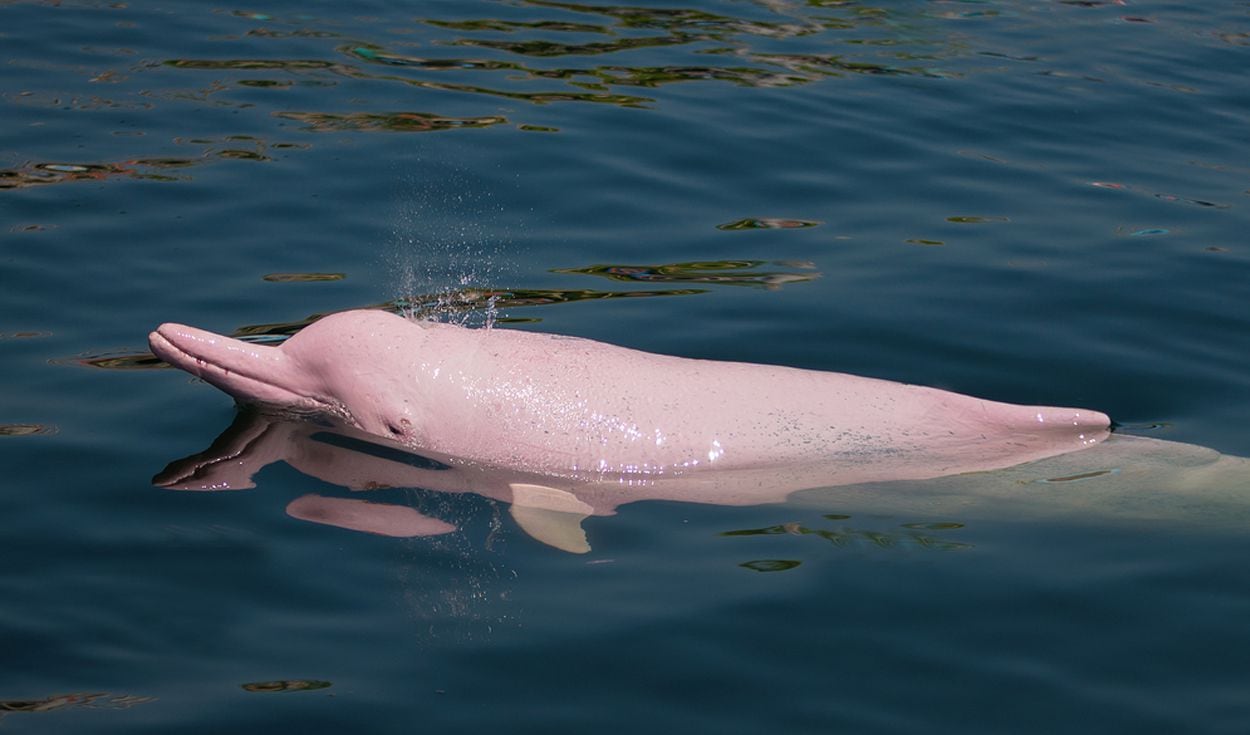
The carcasses of 120 river dolphins have been found floating in a tributary of the Amazon River since last week, in circumstances that experts suspect were caused by the severe drought and the heat.
Low river levels during a severe drought have warmed the water in stretches to temperatures intolerable for dolphins, researchers believe. Thousands of fish have recently died in Amazon rivers due to lack of oxygen in the water.
Amazon dolphins, many strikingly pink, are unique freshwater species found only in the rivers of South America and are one of the few remaining freshwater dolphin species in the world. Their slow reproductive cycles make their populations especially vulnerable to threats.
Scientists have not said with complete certainty that drought and heat are to blame for the increase in dolphin mortality. Researchers are working to rule out other causes, such as a bacterial infection that could have killed the dolphins in a lake formed by the Tefé River before it flows into the Amazon.
At least 70 of the bodies surfaced on Thursday, when Lake Tefé’s water temperature reached 39 degrees Celsius (102 degrees Fahrenheit), more than 10 degrees above average for this time of year.
Environmental activists have blamed the unusual conditions on climate change, which makes droughts and heat waves more likely. The role of global warming in the current Amazon drought is unclear, as there are other factors at play, such as the El Niño phenomenon.
“We have documented 120 bodies in the last week”declared Miriam Marmontel, a researcher at the Mamirauá environmental institute, which deals with the middle basin of the Solimões River.
He said approximately eight out of every 10 carcasses are pink dolphins, called “boots” in Brazil, which could represent 10% of its estimated population in Lake Tefé.
The boto and the gray river dolphin called “tucuxi” They appear on the red list of threatened species of the International Union for Conservation of Nature.
“10% is a very high percentage of loss, and the possibility of it increasing could threaten the survival of the species in Lake Tefé,” Marmontel said.
Brazil’s Chico Mendes Biodiversity Conservation Institute (ICMBio) has rushed veterinarians and aquatic mammal experts to rescue dolphins that are still alive in the lake, but cannot be moved to colder river waters until the Researchers rule out a bacteriological cause of the deaths.
To do this, experts have performed an autopsy on each body.
Source: Reuters
Source: Gestion
Ricardo is a renowned author and journalist, known for his exceptional writing on top-news stories. He currently works as a writer at the 247 News Agency, where he is known for his ability to deliver breaking news and insightful analysis on the most pressing issues of the day.











